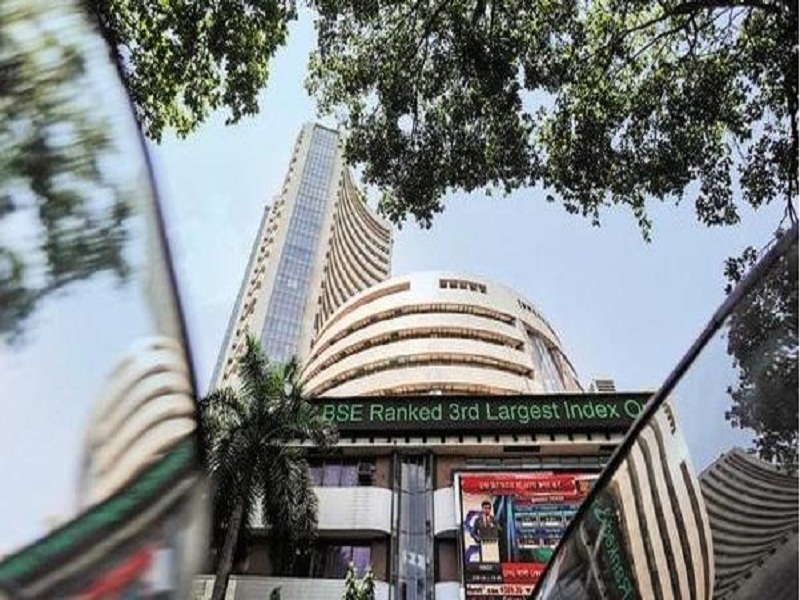Some factors which can erode your wealth in the long term
Published On: Monday, July 13, 2020 | By: Team KnowMyStock

Over 25 years, even a modest 5% inflation reduces the value of Rs 1 lakh to less than Rs 30,000 (see graphic). If inflation is higher at 7%, the value would drop to below Rs 20,000. So, while the amount may seem big today, the inflation-adjusted value of what you get back will not be substantial. The features of some life insurance policies can take your breath away. The return of premium term plans gives back the entire premium paid if the policyholder survives the full term. Just think about it. You can get an insurance cover of Rs 2-3 crore for 20-30 years and if you survive the term, the company will give back every rupee you paid as premium. It’s truly a great offer. Or is it? The money you will get back after 20-30 years would have lost a lot of its value by then.
One of the options of a recently launched Child’s Future Assured Plan requires a buyer to put in Rs 1 lakh per year for 10 years and promises to pay Rs 21.65 lakh on maturity after 20 years. To the layperson, the proposition of Rs 10 lakh growing to Rs 21.65 lakh might appear very lucrative. But a careful study shows that the returns from the insurance savings plan are just a little over 5%. If we assume 5% inflation, the purchasing power of the Rs 21.65 lakh maturity corpus after 20 years will be only Rs 8.2 lakh.
Insurance companies defend these numbers, pointing out that overall interest rates are down. “At a time when the 10-year government bond is offering a yield of around 5.8%, a tax-free return of 5% is not at all bad,” says Anil Kumar Singh, Chief Actuarial Officer of Aditya Birla Sun Life Insurance. He also points out that these plans also have a life insurance component. “It is not a typical investment product but an insurance plan that offers a death benefit in case something untoward happens to the policyholder,” he says.
But the argument that insurance gives tax-free returns should be taken with a pinch of salt. Tax rules allow investors to adjust the cost of an asset to inflation during the holding period. Also known as inflation indexation, this is done by dividing the invested amount by the cost inflation number of the year of purchase, and then multiplying the answer with the cost inflation number of the year of sale. In other words, if your money has not grown at the same pace as inflation, it will anyway escape tax if you claim indexation benefit.
If you are investing for a very short term of 1-2 years, returns don’t matter that much. But experts insist that other investments, especially long-term savings, must be able to beat inflation. Otherwise, your money is just losing value with every passing day.
Investors saving for long-term goals such as their children’s education and marriage and their own retirement should remember that a 100% debt-based portfolio will never be able to beat inflation. Consumer inflation averaged around 4.5% last year but may go up now due to the disruption caused by the lockdown. “If investors are aiming to beat inflation, they have no choice but to have some exposure to equities,” says Deepti Goel, Associate Partner, Alpha Capital. “It is the only asset class that has consistently beaten inflation in the long term.”
The first rule is not to let your money idle in a savings bank account. Don’t be misguided by the attractive 5-6% being offered on the balance by some banks. Your money must grow faster than that to retain its purchasing power.
What does this mean for investments in real estate? Investing in real estate may not be a very good idea if you are using a loan for the purchase. It is clear that real estate prices are not going to rise very fast in the coming years. Our calculations show that one cannot expect more than 7.5% returns from the investment in the best circumstances.
Time also works against you in case you have lost or forgotten about some investments or they are locked in legal disputes. One such example is the case of the six Franklin Templeton debt funds that were wound up in April.
Many middle-class households have saved their hard-earned money in EPF, VPF, PPF, Mutual Funds, Bank Deposits, Postal Savings, Stocks, Bonds, Gold, Real Estate and other such instruments. If any of their life goals such as retirement, children's education/ marriage are in the near term (within the next three years), then it is better to plan for them now.
Always remember that life goals are more important than a little higher or lower profit. Make sure that you have the required amount in your hands at the right time - It is far more important. You will not be able to postpone your lifetime goals for want of money. It is better to be safe than sorry. This is particularly true during these uncertain times.
We are on Telegram!
JOIN our telegram channel to receive updates on Financial News and Stock and FNO Tips.
Click Here!
Follow Us On:






